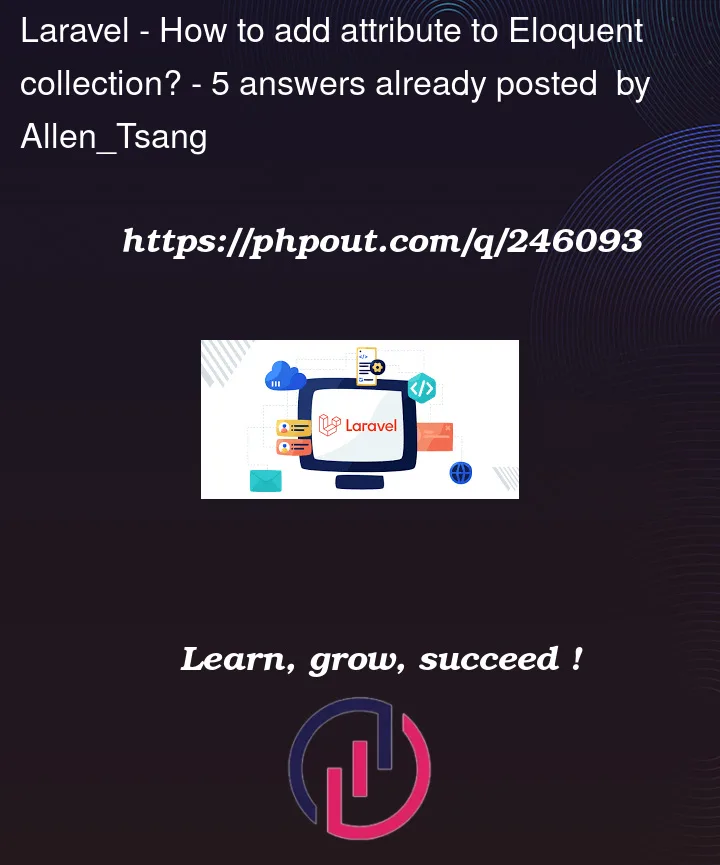In Message.php model:
public function getAudioUrlAttribute()
{
return Storage::disk('public')->url('audio/' . $this->audio);
}
in MessageController.php
$messages = Message::select('id', 'role', 'content', 'audio')->get();
$messages = $messages->map(function($message) {
return $message->only('id', 'role', 'content', 'audio_url');
});
return ['messages' => $messages];
how to add audio_url to the return data elegantly? This is the only way I know, is there a better one?




5
Answers
try this
Your current approach of using the
mapfunction to add theaudio_urlattribute to the Eloquent collection is perfectly fine, and it’s a common way to transform and add attributes to collections in Laravel. However, if you’re looking for an alternative or more concise way to achieve the same result, you can consider using Eloquent’sappendproperty.Here’s how you can do it:
Message.phpmodel, define anappendsproperty that includes theaudio_urlattribute:By adding
'audio_url'to theappendsproperty, you’re telling Laravel to automatically append theaudio_urlattribute to the JSON representation of the model.MessageController.php, simply retrieve the messages without specifying the attributes you want to select:Now, when you return the
$messagescollection, it will automatically include theaudio_urlattribute without the need for additional transformation usingmap.This approach keeps your code more concise and takes advantage of Laravel’s built-in functionality for appending attributes to model instances when they are serialized to JSON.
To get the audio URL of a message without using the
appendproperty in the model, use$message->audioUrl.If you want to append attribute globally,
In
Message.phpmodel:If you want to append it on specific time,
In your ‘Message.php‘ model, you can define an accessor for the ‘audio_url‘ attribute like this:
By naming the method getAudioUrlAttribute, Laravel will automatically append the audio_url attribute to your Message model whenever you retrieve it.
Then, in your MessageController.php, you can simply retrieve the messages without manually selecting the attributes:
Now, when you access the audio_url attribute on a Message model, Laravel will automatically call the getAudioUrlAttribute method, and you’ll have the URL without the need for explicit mapping.